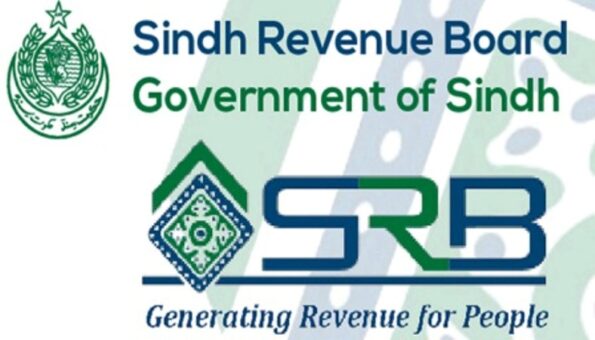KARACHI: The association of value added textile exporters on Wednesday demanded to reduce the withholding income tax by 50 percent in order to reduce burden on manufacturers and improve country’s foreign exchange earnings.
In a joint press conference, the exporters demanded the government of restoring Zero Rating – No Payment No Refund System, continuation of Duty Drawback of Taxes (DDT) & Technology Up-gradation Fund (TUF) scheme, reduce WHT rate to 0.5 percent, suspension of Export Development Fund (EDF) surcharge, reduce and fix tariffs of electricity, indigenous gas & RLNG, continuation of duty free import of cotton yarn in the forthcoming Federal Budget 2021-2022.
Zubair Motiwala, Chairman, Council of All Pakistan Textile Mills Associations; Jawed Bilwani, Chairman, Pakistan Apparel Forum; Tariq Munir, Chairman, Pakistan Hosiery Manufacturers & Exporters Association, Rafiq Godil, Chairman, Pakistan Knitwear and Sweater Exporters Association; Feroze Alam Lari, Chairman, Towel Manufacturers Association of Pakistan; Abdus Samad, Chairman, Pakistan Cloth Merchants Association, Zulfiqar Ch., Chairman, All Pakistan Textile Processing Mills Association; Shaikh Shafiq, Former Chairman, Pakistan Readymade Garment Manufacturers & Exporter Association; Khawaja M. Usman, Former Chairman, Pakistan Cotton Fashion Apparels Manufacturers & Exporters Association, Amin Allana, Chairman, All Pakistan Bedsheets & Upholstery Manufacturers Association, Yusuf Yaqoob, Chairman, Pakistan Weaving Manufacturers Association participated in the Joint Press Conference held at PHMA today.
The Chairmen of the Value Added Textile Exports Associations apprised that they have submitted Budget Proposals to the Federal Government wherein the top demand is to restore Zero Rating on GST – “No Payment No Refund Regime” through revival of SRO 1125 in letter & spirit as SME exporters have been closed down and decreased by 30% as compared to last year due to imposition of 17% which blocked exporters precious liquidity. They were of the view that the textile exporters are optimistic and hopeful that the Government in the Federal Budget 2021-22 will seriously consider and accept their demands, proposals and recommendations.
They highlighted that despite COVID19, the textile exports have increased by 17.35% as compared to last year and will InSha-ALLAH reach to US$ 15.50 billion in FY 2020-21 owing to incumbent Government’s pragmatic policies – payments of Drawback of Local Taxes & Levies (DLTL) / Duty Drawback of Taxes (DDT), special / competitive tariff and uninterrupted supply of utilities. They stated that It is on record that due to commencement and payments of DLTL Scheme in 2009, the Textile Exports have increased by 7.3% in 2010 and by 35% in 2011. However, in 2012, textile exports were decreased by 10.66% due to withheld payments of DLTL. Therefore it is most crucial that the Government must continue the DDT scheme for the next five years. They demanded that Duty Drawback of Taxes on Garment, Home Textile & Fabric exports should be provide @ 7%, 6% & 5% respectively on shipment basis for next five years to compete in the international market as competing countries are extending same around 12% to 16%. With commitment, the rates will be increased every year by 1% which means 7%, 6% & 5% in 2021-22, 8%, 7% & 6% in 2022-23, 9%, 8% & 7% in 2023-24 and so on, respectively. Further, Incremental DDT, on an increase of 10% exports over previous year, should also be provided @ 2%. This will bring huge investments in textile sector and shall encourage new-comer exporters to invest in textile sector.
They said that with the introduction of Technology Up-Gradation Fund (TUF) scheme in 2009, 30% Capacity of Textile Sector has been enhanced. Therefore, it is imperative to reinstate Technology Up-Gradation Fund (TUF) Scheme for next five years. This will bring up-gradation and advancement in technology leading to production enhancement as well as exports. 0.25% Export Development Fund (EDF) Surcharge is deducted from export proceeds of the exporters for export development since 1992. Collection of EDF surcharge is approx. Rs9 billion annually. Presently Govt. has Rs58 billion in its kitty on account of EDF. Hence, they demanded to the Government to suspend collection of Export Development Surcharge till unutilized amount of Rs58 billion of Export Development Fund (EDF) is exhausted. Exporters fall under Final Tax Regime and required to pay 1% WHT of their export proceeds. They demanded that Withholding Tax (WHT) should be reduced from 1% to 0.5% for exporters as this would also help the exporters in using the cash liquidity for enhancement of the exports.
The present Government had announced separate tariff of gas and electricity for export sectors with an assurance that this tariff will last for 3 years. However, tariff of gas and electricity was enhanced after a year. To compete in the internationally and capture more markets, it is crucial that tariff of Electricity, Indigenous Gas and RLNG for exporters should be fixed at 7.5 cents/kwh, Rs819/MMBTU and $6.5/MMBTU respectively for next five years and the same should be applied countrywide.
Owing to historically low cotton production in the country and severe shortage of cotton yarn, on demand of the Value Added Textile Sector, Government has allowed duty free import of Cotton Yarn till 30th June, 2021. We understand that the Government should continue duty free import of cotton yarn until Pakistan’s cotton production reaches to 14 million bales. They recommend that permission for import of Raw Materials and Intermediate Goods for manufacturing of finished goods meant for export under Duty & Tax Remission for Exporters (DTRE) should be automated and allowed to registered Textile Exporters through Ministry of Commerce Textile Industry’s RDA Cell whose licence is renewed after every two years as RDA Cell, Textile Division, Ministry of Commerce has complete details of textile units i.e. production, exports, machinery, exportable items details including HS Codes, Value, Quantity etc. Subsequently, once RDA Cell approves the permission for import of Raw Materials and Intermediate Goods under DTRE and it should be processed on fast track within 48 hours by Customs, accordingly.
It is pertinent to mentioned that Value Added Textile Exports contribute to around 62% in total exports, provides 42% urban employment particularly to female workforce who mostly are widows and orphans, earns highest foreign exchange and supports approx. 40 allied industries. In this manner, the value added textile industry playing pivotal role to strengthen the economy and prosperity of the country. They were of the view that the exports must remain top priority of the Government as it is the lifeline of economy deserves government’s continuous support. If the Government assures to extend the deserving support to the Value Added Textile Export Sector it has the capacity to achieve the milestone and pledges to enhance its exports by 30% and will reach at US $20 billion in FY2021-22 and shall increase by 25% every year onward 2022-2023 resulting to surplus trade of Pakistan, more foreign exchange earnings & additional employment.








